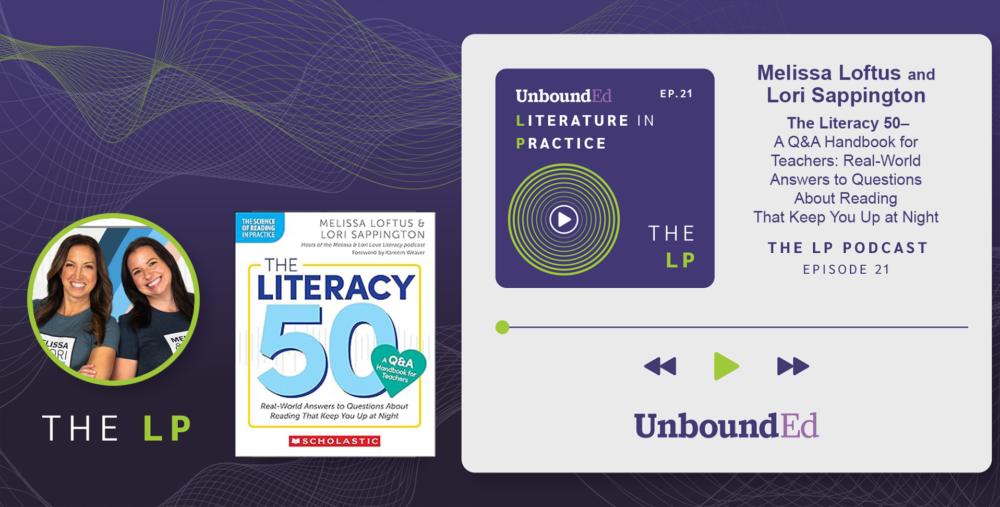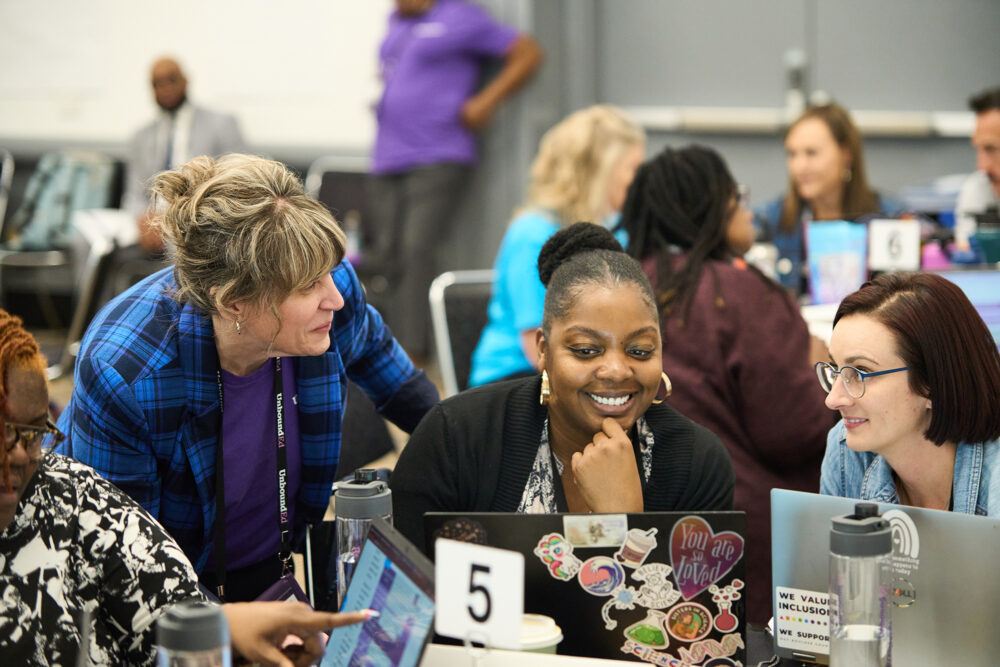
How do we navigate the challenges of turning the science of reading into the reality of daily instruction? Educators nationwide are committed to research-backed literacy instruction, but sometimes, the process can lead to more questions or misconceptions. I connected with Melissa Loftus and Lori Sappington to discuss their book, The Literacy 50–A Q&A Handbook for Teachers: Real-World Answers to Questions About Reading That Keep You Up at Night. Join us as we tackle some of these and some of my own questions.
Melissa & Lori Love Literacy is a podcast for educators interested in the science of reading for students of all ages. Hear the latest research on teaching reading and writing and learn how to apply it in your classroom practically. Melissa is a National Board-Certified teacher who taught middle and high school English Language Arts for nearly fifteen years in New Orleans and Baltimore. Lori is an energetic former elementary and high school teacher who taught for over a decade in Baltimore.
Key Takeaways
- Grade-appropriate materials expose students to rich vocabulary and content that is crucial for building knowledge and improving comprehension.
- They stress teaching vocabulary in context, using grade-level texts, and helping students develop word-learning strategies and word consciousness.
- The authors highlight how background knowledge significantly impacts reading comprehension, using examples like the baseball study to illustrate this point.
- Decodable texts for practicing specific phoneme-grapheme correspondences are important, but a balanced approach that includes authentic texts and read-aloud opportunities is essential.
- Teacher enthusiasm is critical to connecting content to students’ lives and fostering curiosity to make developing literacy skills an engaging and meaningful process.
- Complex reading science concepts are more accessible to teachers and families through bite-sized, practical information in their book and podcast.
Resources
- Book: CORE’s Teaching Reading Sourcebook, 3rd Edition
- Podcast: Melissa and Lori Love Literacy by Great Minds
- Website: Curriculum Evaluation Guidelines by The Reading League
- Podcast: The Science of Reading Podcast by Amplify

Listen to the LP Podcast
More EpisodesNext steps with GLEAM®
Choose the path that fits your team

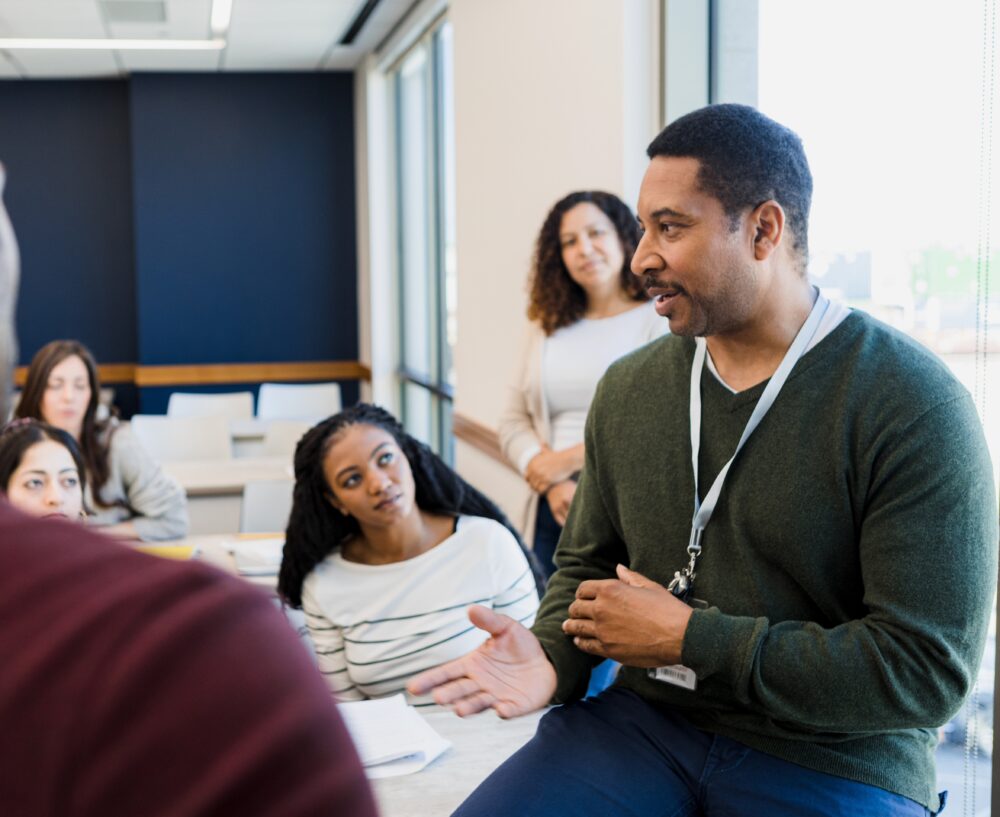
UnboundEd Summits
Accelerate your instructional vision and build educators’ skills and expertise with a virtual or on-site Local Summit.
Learn More ➜

In-Service Workshops
UnboundEd’s dynamic, hands-on workshops build educator capacity by focusing on timeless, cross-disciplinary instructional moves that drive effective instruction, rigor, and student empowerment.
Learn More ➜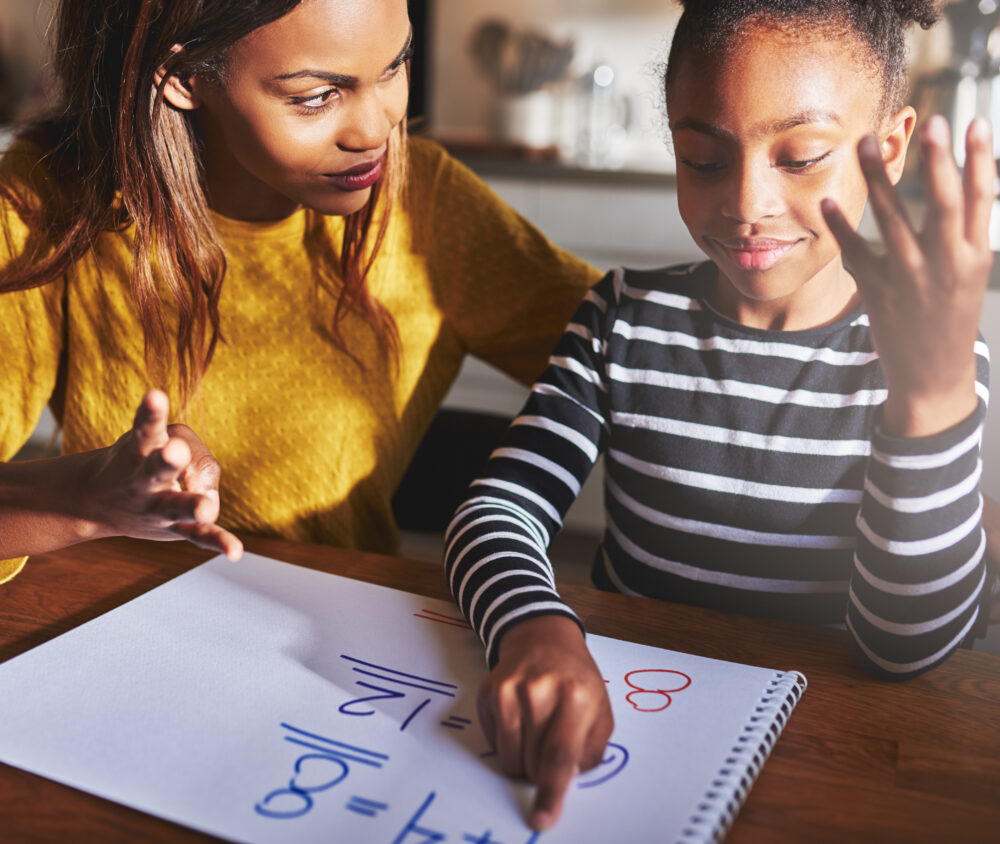
Online Math Academy
UnboundEd’s Online Math Academy courses enrich educators’ content knowledge and instructional practices to unlock all students’ math potential.
Learn More ➜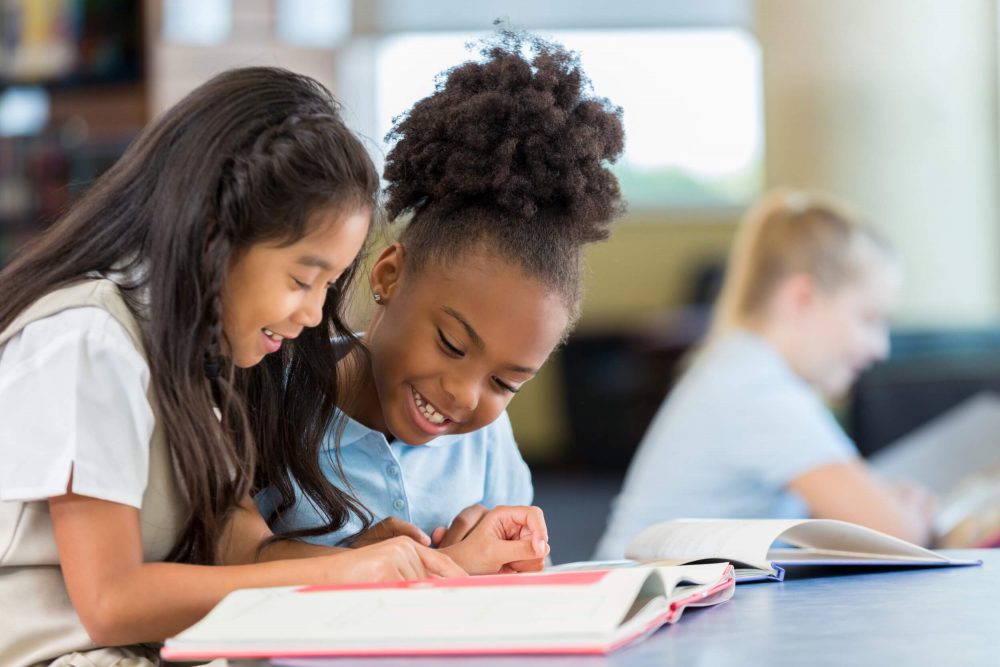
Curriculum Adoption
Ensuring quality materials are adopted and used effectively is crucial to improving outcomes and requires a strong instructional materials selection process. We’re here to share guidance and support on leading a rigorous and collaborative curriculum adoption process to select the right materials for your context and goals.
Learn More ➜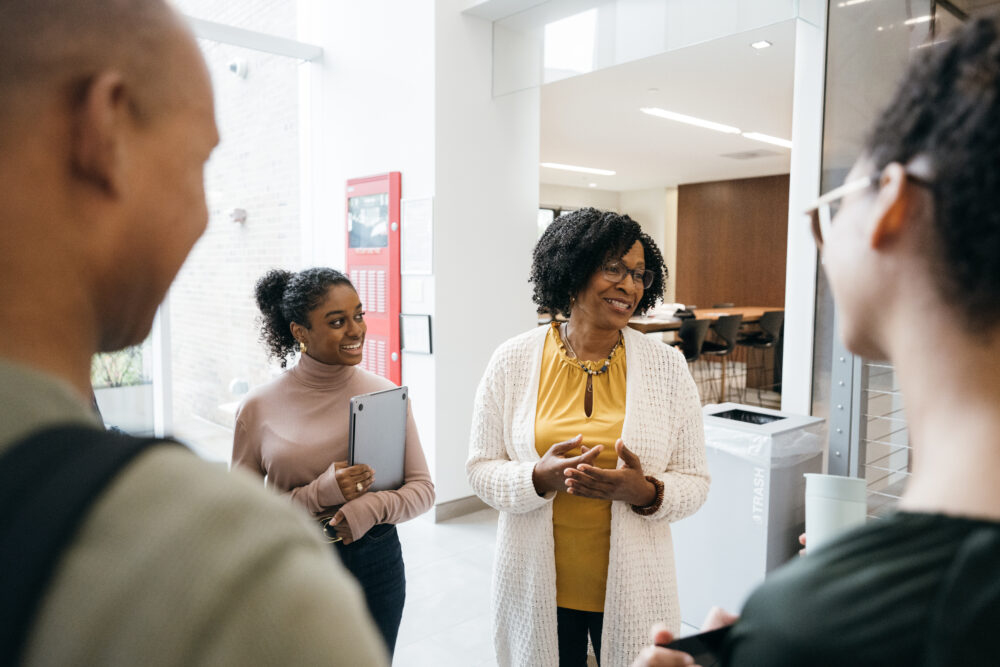
Curriculum Implementation
Just getting started, or need to get back on track? We work with you on a shared vision and an actionable plan for curriculum success.
Learn More ➜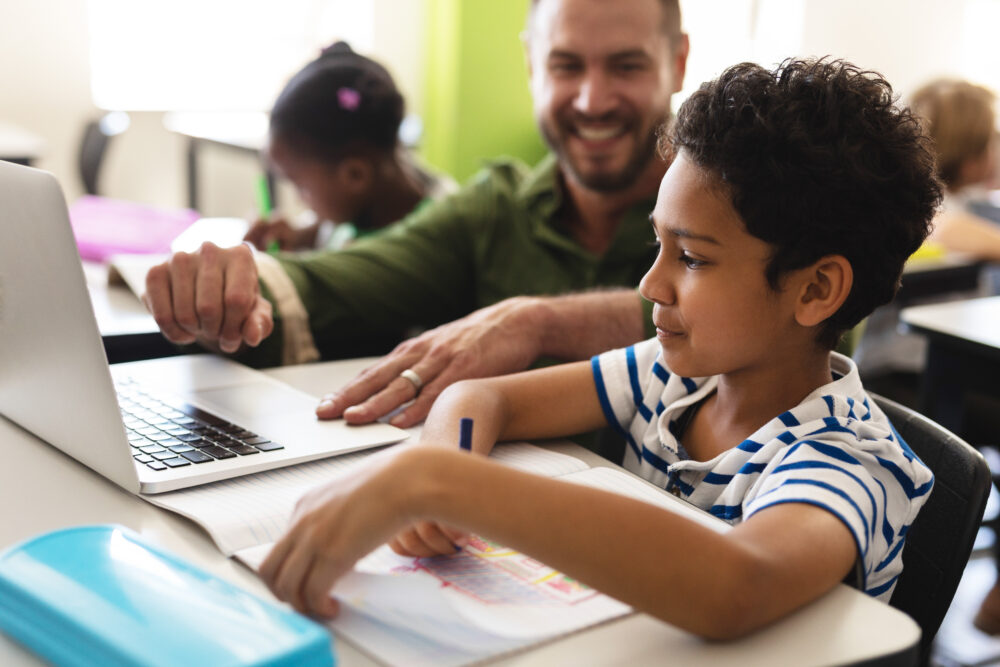
Literacy ReclaimEd
Improve literacy instruction and better meet the unique needs of every student.
Learn More ➜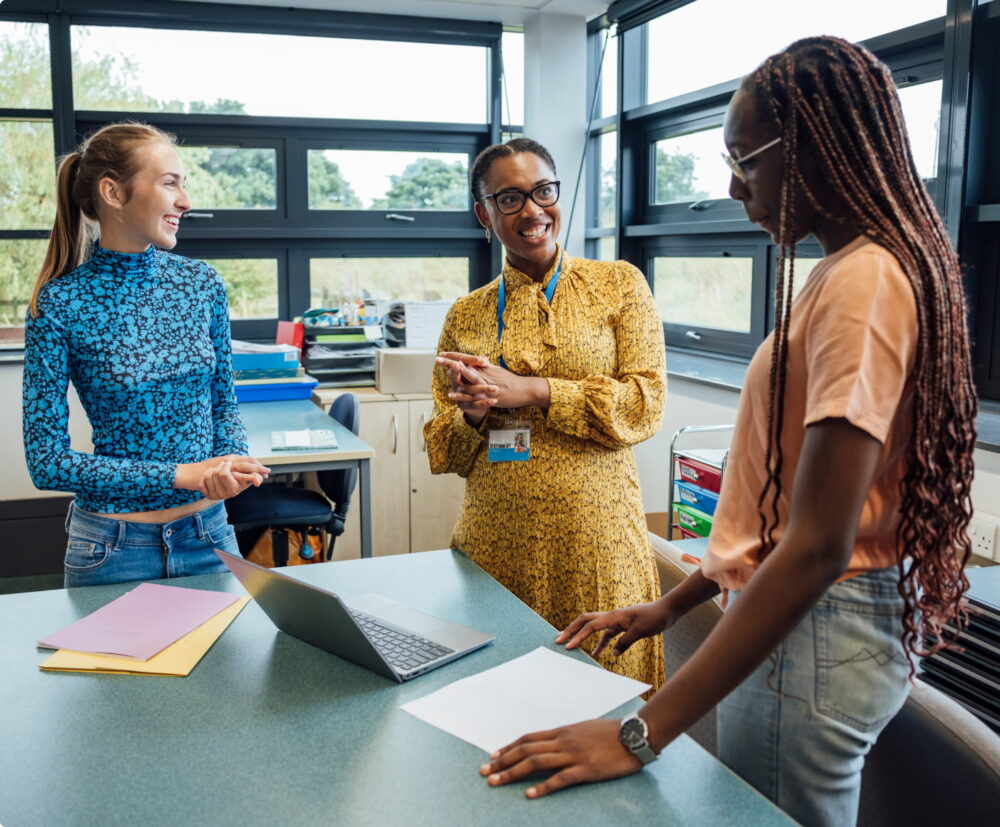
GLEAM® Inventory
Build your team’s understanding of grade-level, engaging, affirming, and meaningful –GLEAM®– instruction and transform how you serve all students in your district.
Learn More ➜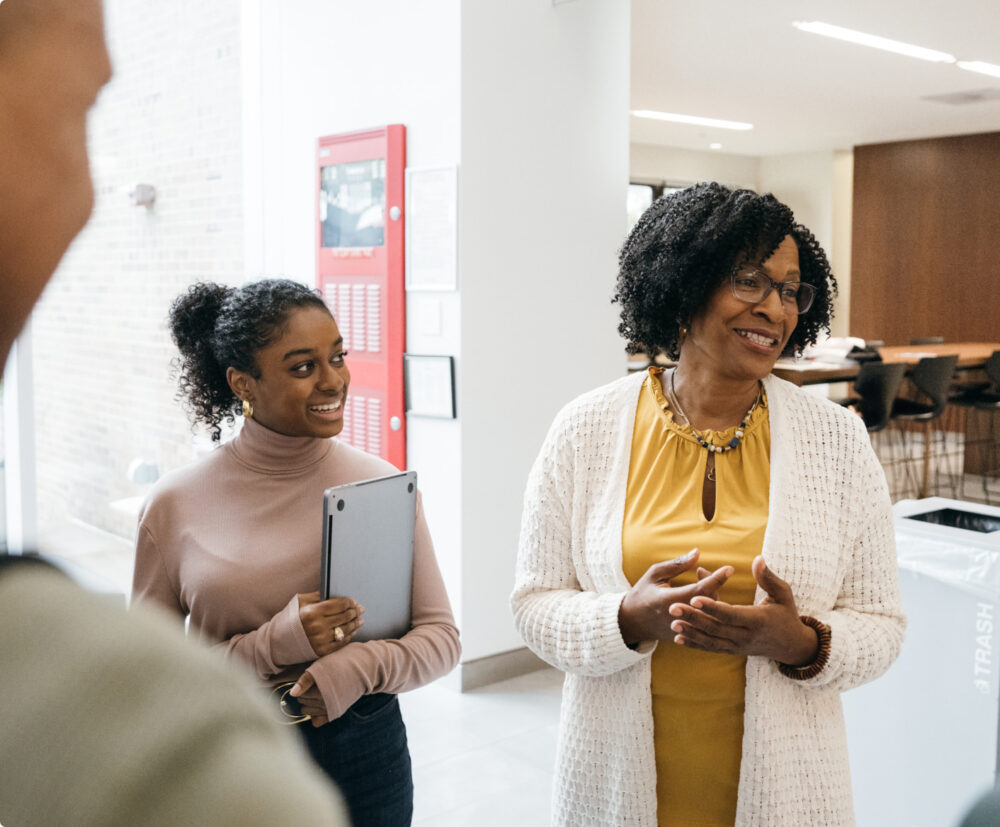
Speaking Engagements
Our experts offer inspiring, thought-provoking messages and conversations that will get your team thinking creatively about shifting mindsets and changing practice.
Learn More ➜
California Math Curriculum Adoption and Launch Cohort
Prepare to adopt and launch high-quality mathematics instructional materials with no-cost, grant-funded support from UnboundEd.
Learn More ➜